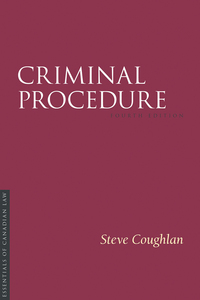
On January 20, 1843 a wood turner named Daniel M’Naughten shot Edward Drummond, secretary to Prime Minister Sir Robert Peel. Drummond died a few days later and M’Naughten’s murder trial at the Old Bailey became the leading story of the day as reported in painstaking detail by The Times. Drummond came from a noble Scottish family, related to Queen Victoria, and with significant banking interests in the City. It was revealed at trial that M’Naughten’s intended victim was in fact the Prime Minister. Both the Crown and the accused were represented by leading barristers with the Lord Chief Justice of England presiding. According to The Times, extra constabulary were required to manage the crowds seeking access to the court’s gallery. It was a spectacle.
However, this compelling story might only have been an historical footnote were it not for the verdict of not guilty by reason of insanity and fallout that ensued. The verdict so outraged the Queen that she ordered a committee of the House of Lords to review the court’s decision. The result was the so-called ‘M’Naughten Rules’ which formed, and continue to form, the basis of the insanity defence in England and most English-speaking jurisdictions around the world including the United States. The rules also remain extremely controversial.
The Lunatic and the Lords, by Richard Schneider is a riveting account of the events surrounding Drummond’s murder, M’Naughten’s trial at the Old Bailey, and its aftermath. But it is also an analysis of the legacy of M’Naughten’s case in the context of contemporary criminal law and medical science. Few authors are better suited to this task. Richard Schneider is a former criminal lawyer and clinical psychologist who now, as a judge of the Ontario Court of Justice, presides at the Mental Health Court in Toronto where M’Naughten’s case is of relevance on a daily basis. In the course of telling M’Naughten’s story, Schneider describes the evolution of the notion of criminal responsibility as it applies to mental disorder, and the not always comfortable interface between the criminal justice system and medicine.
However, this compelling story might only have been an historical footnote were it not for the verdict of not guilty by reason of insanity and fallout that ensued. The verdict so outraged the Queen that she ordered a committee of the House of Lords to review the court’s decision. The result was the so-called ‘M’Naughten Rules’ which formed, and continue to form, the basis of the insanity defence in England and most English-speaking jurisdictions around the world including the United States. The rules also remain extremely controversial.
The Lunatic and the Lords, by Richard Schneider is a riveting account of the events surrounding Drummond’s murder, M’Naughten’s trial at the Old Bailey, and its aftermath. But it is also an analysis of the legacy of M’Naughten’s case in the context of contemporary criminal law and medical science. Few authors are better suited to this task. Richard Schneider is a former criminal lawyer and clinical psychologist who now, as a judge of the Ontario Court of Justice, presides at the Mental Health Court in Toronto where M’Naughten’s case is of relevance on a daily basis. In the course of telling M’Naughten’s story, Schneider describes the evolution of the notion of criminal responsibility as it applies to mental disorder, and the not always comfortable interface between the criminal justice system and medicine.
Book details
-
Publisher
-
Original text
Yes -
Language
English -
Publication date
-
Page count
306 -
Theme
About the author
Richard D. Schneider
Hon. Richard D. Schneider, PhD, LLM, CPsych, is a justice of the Ontario Court of Justice, a deputy judge of the Territorial Court of the Yukon, chair of the Ontario Review Board, and an alternate chair of the Nunavut Review Board. He is also an adjunct professor in the faculties of law and medicine at the University of Toronto. Prior to his appointment to the bench, Justice Schneider was a criminal defence lawyer, a clinical psychologist, and counsel to the Ontario Review Board. He has published extensively in the area of mental disorder and the law.








